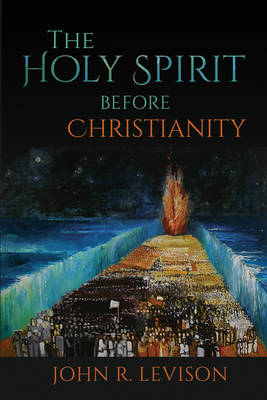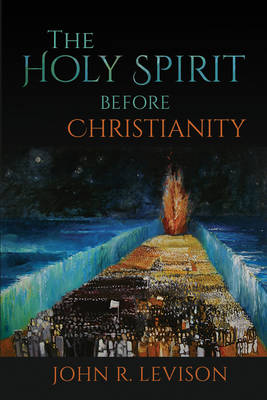
- Afhalen na 1 uur in een winkel met voorraad
- Gratis thuislevering in België vanaf € 30
- Ruim aanbod met 7 miljoen producten
- Afhalen na 1 uur in een winkel met voorraad
- Gratis thuislevering in België vanaf € 30
- Ruim aanbod met 7 miljoen producten
Zoeken
Omschrijving
With his latest book, The Holy Spirit before Christianity, John R. Levison again changes the face and foundation of Christian belief in the Holy Spirit. The categories Christians have used, the boundaries they have created, the proprietary claims they have made--all of these evaporate, now that Levison has looked afresh at Scripture.
In a study that is both poignant and provocative, Levison takes readers back five hundred years before Jesus, where he discovers history's first grasp of the Holy Spirit as a personal agent. The prophet Haggai and the author of Isaiah 56-66, in their search for ways to grapple with the tragic events of exile and to articulate hope for the future, took up old exodus traditions of divine agents--pillars of fire, an angel, God's own presence--and fused them with belief in God's Spirit. Since it was the Spirit of God who led Israel up from Egypt and formed them into a holy nation, now, the prophets assured their hearers, the Spirit of God would lead and renew those returning from exile. Taking this point of origin as our guide, Christian pneumatology--belief in the Holy Spirit--is less about an exclusively Christian experience or doctrine and more about the presence of God in the grand scheme of Israel's history, in which Christianity is ancient Israel's heir. This explosive observation traces the essence of Christian pneumatology deep into the heart of the Hebrew Scriptures. The implications are fierce: the priority of Israelite tradition at the headwaters of pneumatology means that Christians can no longer hold stubbornly to the Holy Spirit as an exclusively Christian belief. But the implications are hopeful as well, offering Christians a richer history, a renewed vocabulary, a shared path with Judaism, and the promise of a more expansive and authentic experience of the Holy Spirit.Specificaties
Betrokkenen
- Auteur(s):
- Uitgeverij:
Inhoud
- Aantal bladzijden:
- 272
- Taal:
- Engels
Eigenschappen
- Productcode (EAN):
- 9781481310031
- Verschijningsdatum:
- 15/09/2019
- Uitvoering:
- Hardcover
- Formaat:
- Genaaid
- Afmetingen:
- 165 mm x 238 mm
- Gewicht:
- 544 g

Alleen bij Standaard Boekhandel
+ 120 punten op je klantenkaart van Standaard Boekhandel
Beoordelingen
We publiceren alleen reviews die voldoen aan de voorwaarden voor reviews. Bekijk onze voorwaarden voor reviews.











